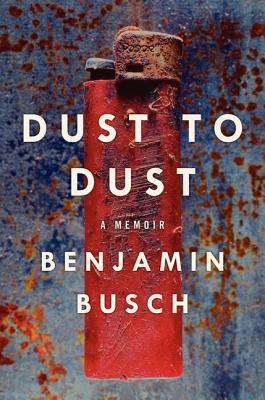Dust to Dust is an extraordinary memoir about ordinary things: life and death, peace and war, the adventures of childhood and the revelations of adulthood. Benjamin Busch—a decorated U.S. Marine Corps infantry officer who served two combat tours in Iraq, an actor on The Wire, and the son of celebrated novelist Frederick Busch—has crafted a lasting book to stand with the finest work of Tim O'Brien or Annie Dillard.
In elemental-themed chapters—water, metal, bone, blood—Busch weaves together a vivid record of a pastoral childhood in rural New York; Marine training in North Carolina, Ukraine, and California; and deployment during the worst of the war in Iraq, as seen firsthand. But this is much more than a war memoir. Busch writes with great poignancy about the resonance of a boyhood spent exploring rivers and woods, building forts, and testing the limits of safety. Most of all, he brings enormous emotional power to his reflections on mortality: in a helicopter going down; wounded by shrapnel in Ramadi; dealing with the sudden death of friends in combat and of parents back home.
Dust to Dust is an unforgettable meditation on life and loss, and how the curious children we were remain alive in us all.
Check out some photos related to this book HERE.
Read an excerpt HERE.
Jackie says:
"'I knew very early that I was a solitary being. I longed for the elemental'. That is how the prologue to this book begins. Two pages into this memoir, I was entranced. Busch has a style of writing that thrills me in a way that I cannot explain--baldly honest, clear eyed and bursting with the visual and tactile as well as profound emotion with a deep seated philosophy a constant undercurrent to the prose. He tells his story through the elements that have made the most impressions on him throughout his life, with chapters named 'Water', 'Soil', 'Wood', 'Stone'. He also reveals his life long affinity toward soldiering in 'Arms', 'Metal', 'Blood'. Yet, just like in life, all of the elements come into play, often mixing together during important times, providing a continuous center that not everyone can identify in themselves. Written as a way through his grief at the loss of his parents--both in less than a year--this book offers up a way for all of us to examine our lives and their components, to see how they built us, where they have taken us or will take us, and what it all means. This is an astonishing book, and I cannot find enough ways to recommend it. I'll settle with, "Please, read this book."


No comments:
Post a Comment